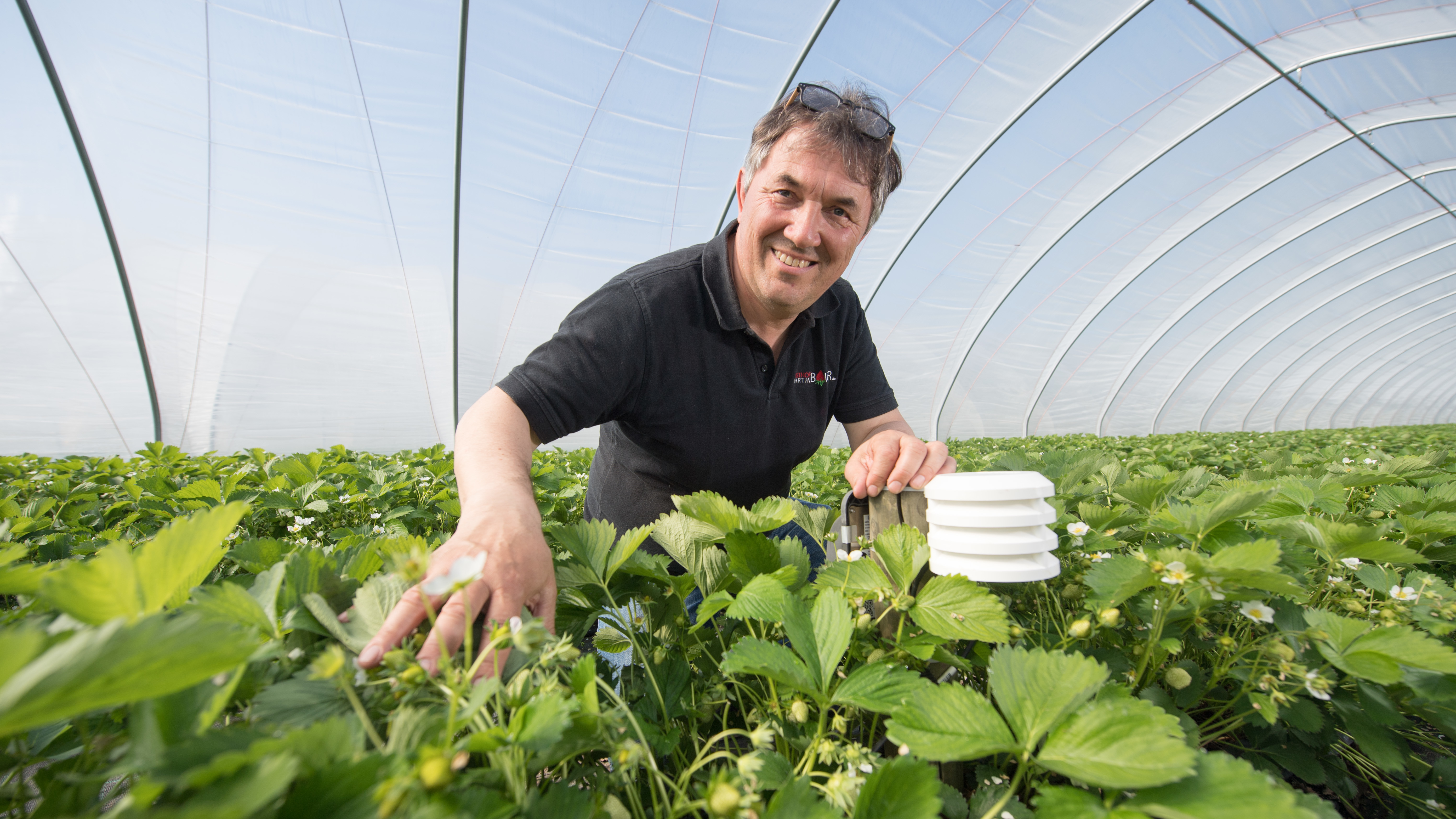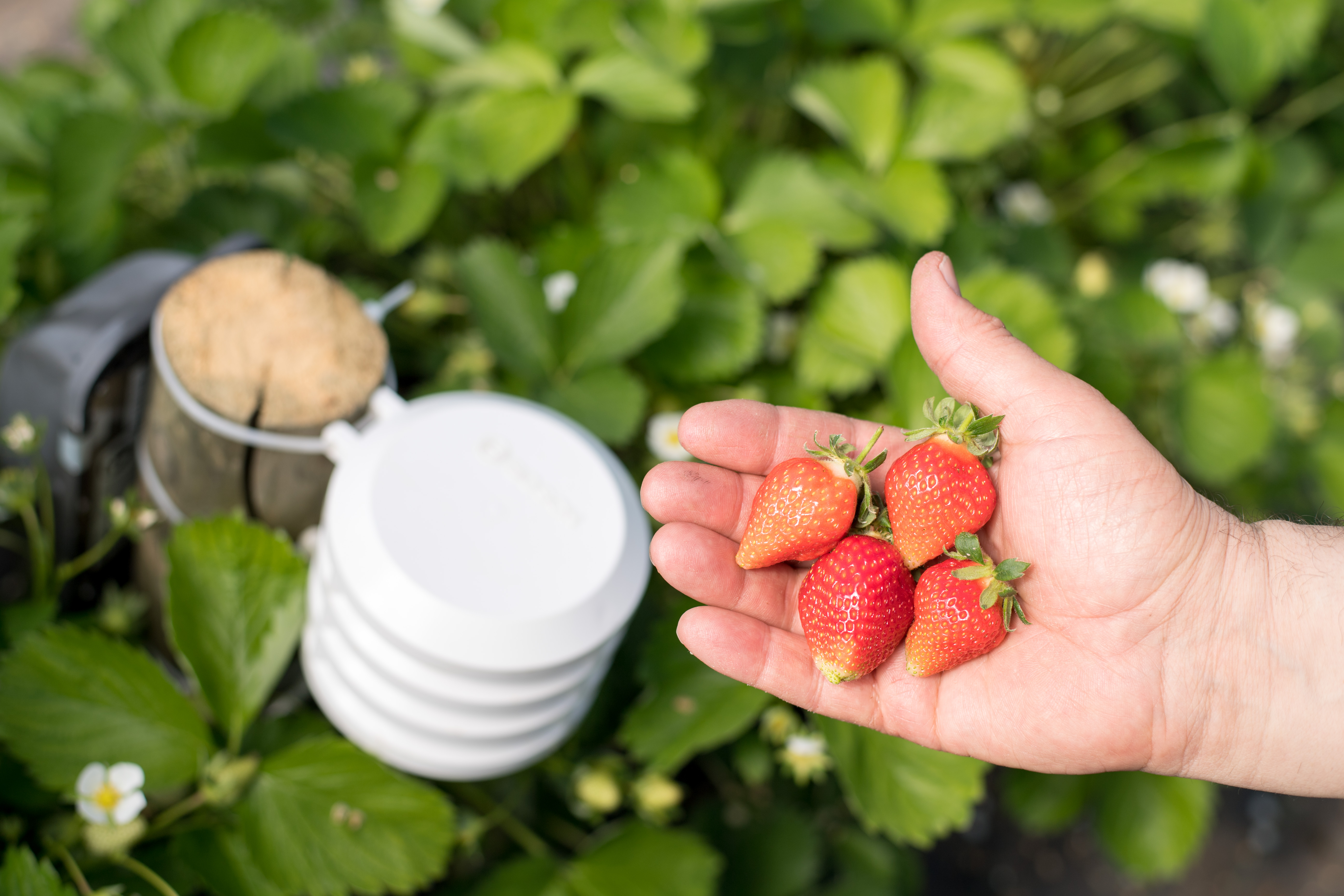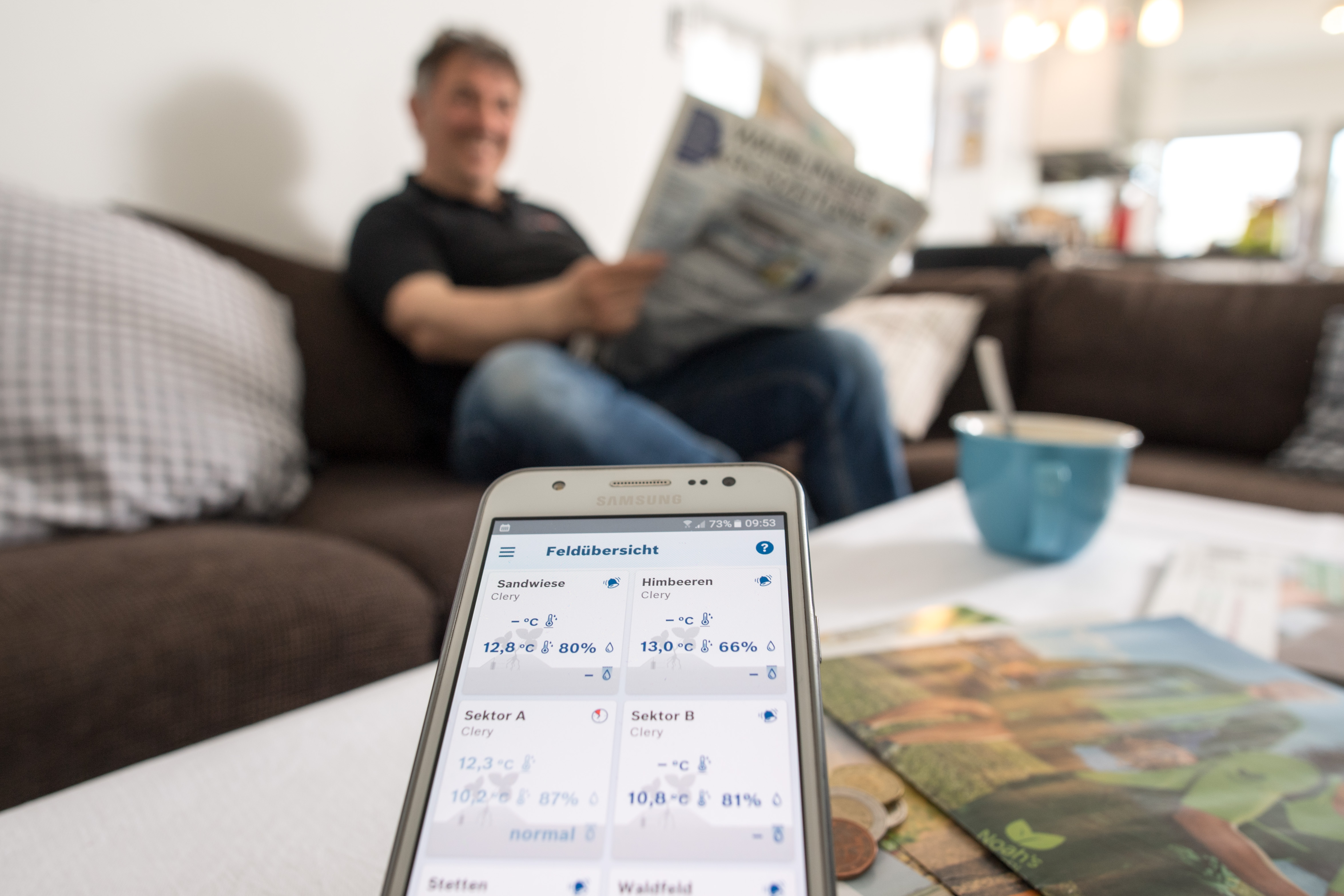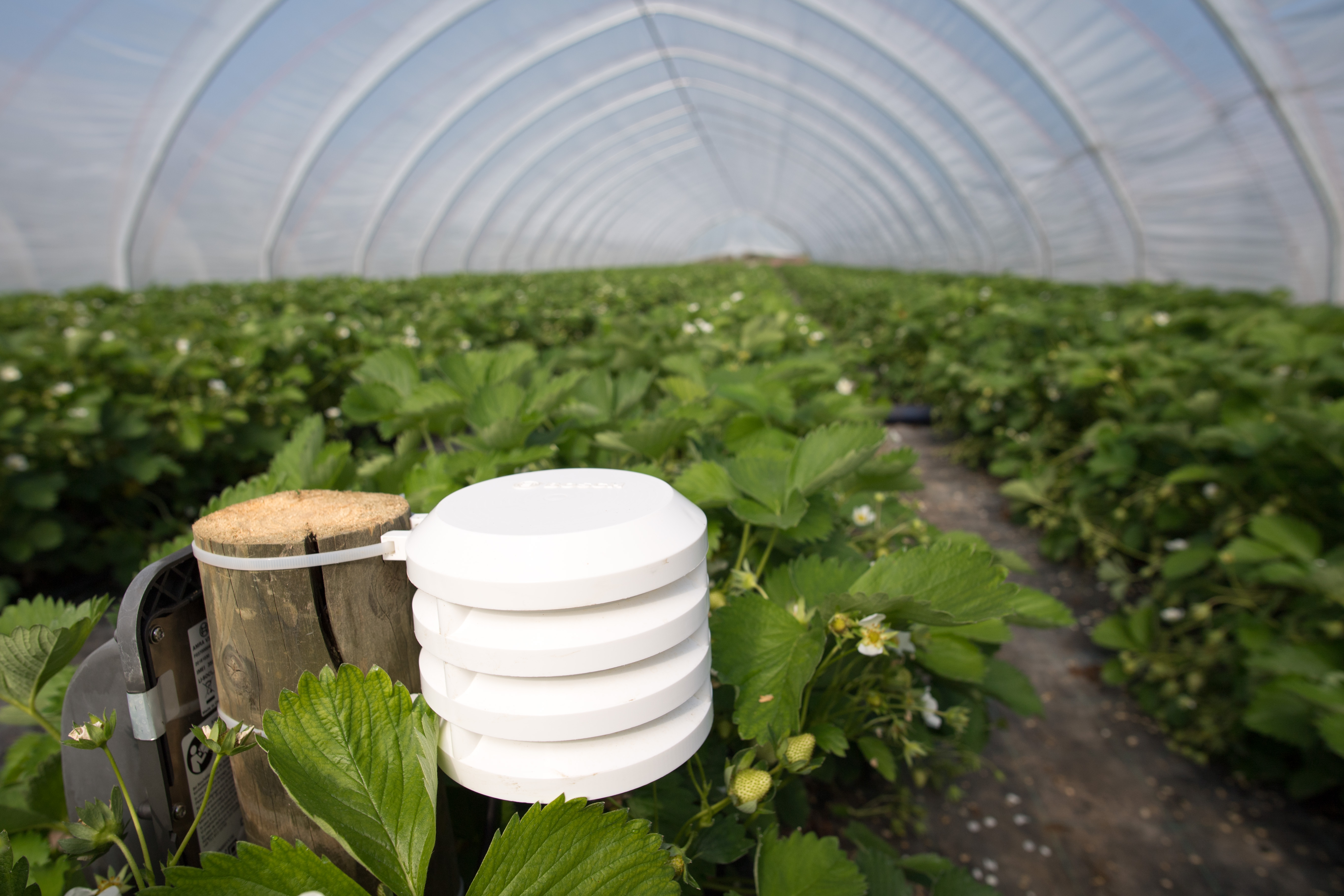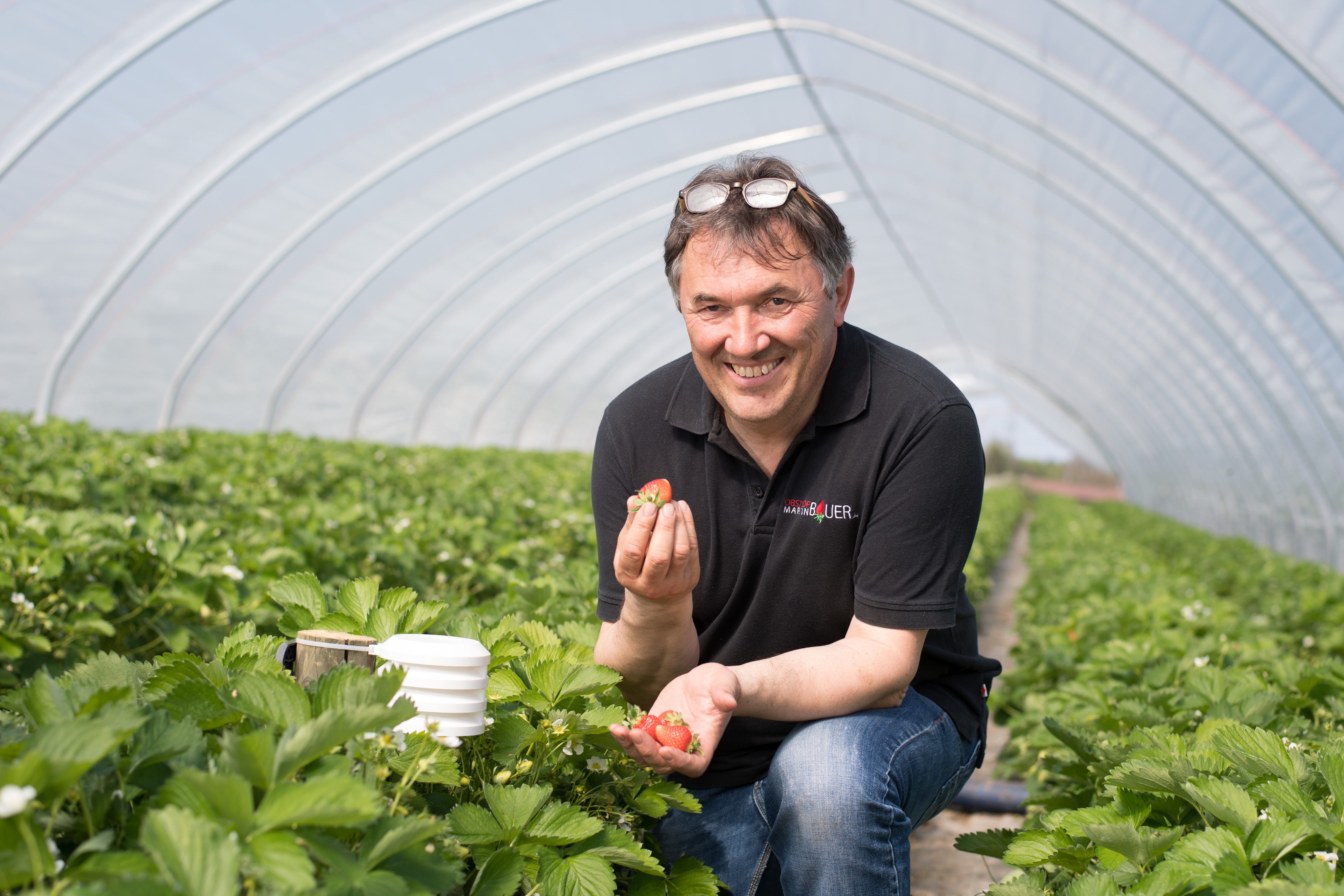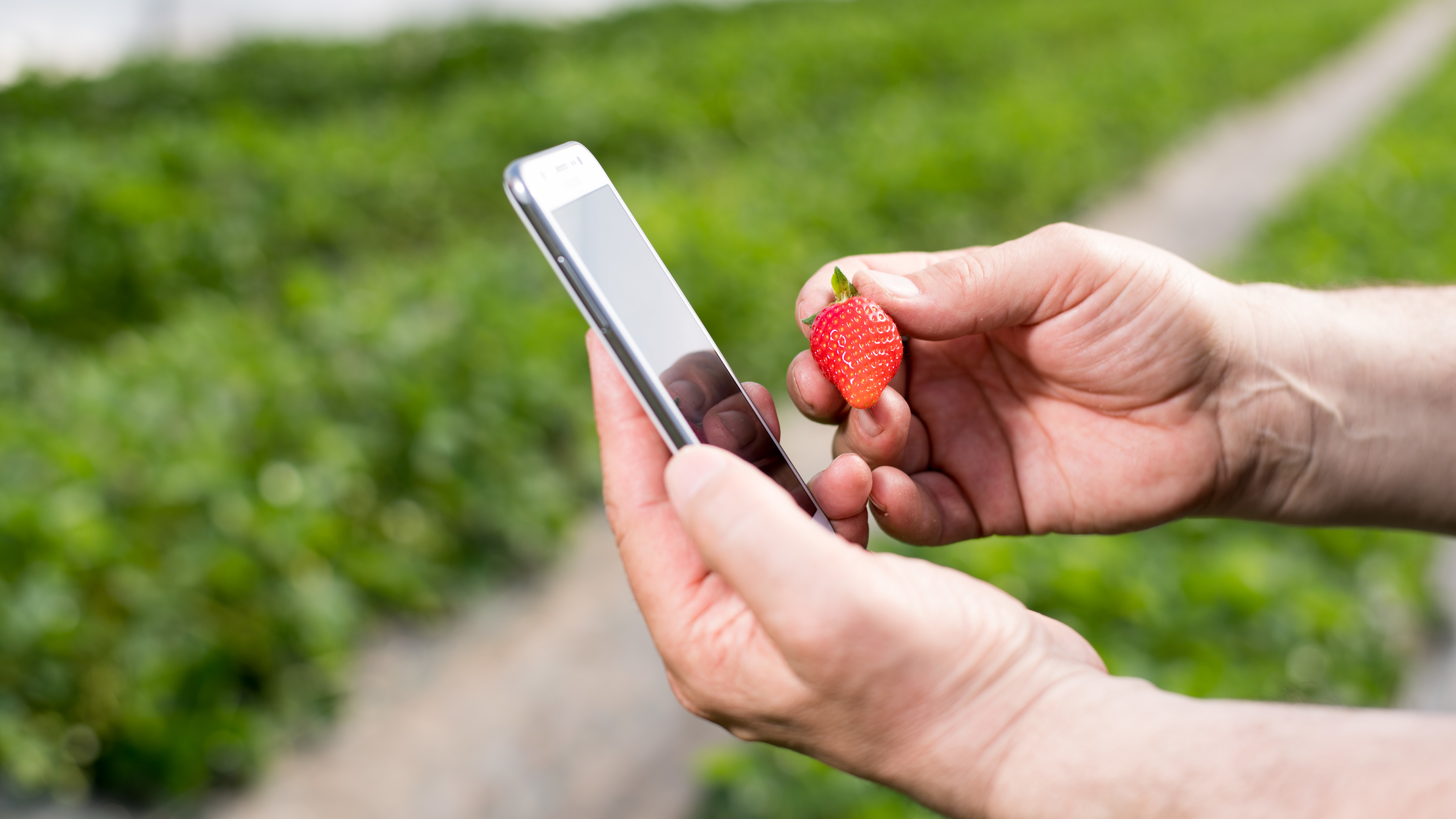Renningen and Weinstadt, Germany – For the grower Martin Bauer, it was not that long ago that strawberry season meant one thing: sleepless nights. Between mid-March and late May, when the plants flower, he would have to work ten to fifteen night shifts. Fearing that his strawberry plants could fall victim sub-zero temperatures at night, he would drive out to his fields around the German town of Weinstadt, near Stuttgart. If a check of air temperature revealed it was zero degrees Celsius or colder, he would cover the long rows of strawberries with fleece. “Frost would ruin everything,” Bauer says. He knows what he is talking about: losing 50 to 70 percent of his entire strawberry crop every two to three years used to be a fact of life – posing a serious threat to his livelihood.
However, Bauer no longer has to worry. On six of his twelve fields, a Bosch sensor system now monitors the condition of his strawberry plants. “The app that comes with the system lets me check on my plants from home – while sitting comfortably on my couch or under the bedclothes, so I don’t disturb my wife’s sleep,” Bauer says. “This doesn’t only make life easier for me. In the old days, 20 helpers used to have to regularly drive out to the fields with me at night.” Lessons learned from the six fields equipped with sensors can be applied to the other six; Bauer selected the fields with local climatic fluctuations in mind.
Sensor system measures temperature and humidity
The sensor system is the brainchild of the Deepfield Robotics, a Bosch start-up. The sensors measure the amount of moisture in the soil and inform the grower if it is too dry. They also measure air temperature and humidity and use that in order to calculate wet-bulb temperature. “If this temperature is zero degrees Celsius or below when the plants are beginning to flower, the grower has to cover the plants or take other steps to protect them from frost,” says Christian Glunk from Deepfield Robotics. The grower is also informed if the plants are too warm. Growers themselves can set the threshold values that will trigger an alert. In that case, growers can remove the coverings to ensure the sensitive plants are properly ventilated. And by tracking temperature and humidity records, growers can check whether everything is progressing smoothly or if there is a risk of mildew. “None of this requires any manual measurements,” Glunk says.
What’s more, the system can be used for other plants. Fruit growers could also use the sensors to monitor the development and growth of currants or raspberries. For Martin Bauer, this is a tempting idea – after all, he grows raspberries, too.
For more information on the technical details of the sensor system, go to https://www.deepfield-robotics.com/
About Bosch
The Bosch Group is a leading global supplier of technology and services. It employs roughly 400,500 associates worldwide (as of December 31, 2017). According to preliminary figures, the company generated sales of 78 billion euros in 2017. Its operations are divided into four business sectors: Mobility Solutions, Industrial Technology, Consumer Goods, and Energy and Building Technology. As a leading IoT company, Bosch offers innovative solutions for smart homes, smart cities, connected mobility, and connected industry. It uses its expertise in sensor technology, software, and services, as well as its own IoT cloud, to offer its customers connected, cross-domain solutions from a single source. The Bosch Group’s strategic objective is to create solutions for a connected life, and to improve quality of life worldwide with products and services that are innovative and spark enthusiasm. In short, Bosch creates technology that is “Invented for life.” The Bosch Group comprises Robert Bosch GmbH and its roughly 450 subsidiaries and regional companies in some 60 countries. Including sales and service partners, Bosch’s global manufacturing, engineering, and sales network covers nearly every country in the world. The basis for the company’s future growth is its innovative strength. At 125 locations across the globe, Bosch employs 62,500 associates in research and development.
The company was set up in Stuttgart in 1886 by Robert Bosch (1861-1942) as “Workshop for Precision Mechanics and Electrical Engineering.” The special ownership structure of Robert Bosch GmbH guarantees the entrepreneurial freedom of the Bosch Group, making it possible for the company to plan over the long term and to undertake significant up-front investments in the safeguarding of its future. Ninety-two percent of the share capital of Robert Bosch GmbH is held by Robert Bosch Stiftung GmbH, a charitable foundation. The majority of voting rights are held by Robert Bosch Industrietreuhand KG, an industrial trust. The entrepreneurial ownership functions are carried out by the trust. The remaining shares are held by the Bosch family and by Robert Bosch GmbH.
Additional information is available online at www.bosch.com, iot.bosch.com,www.bosch-press.com, www.twitter.com/BoschPresse

